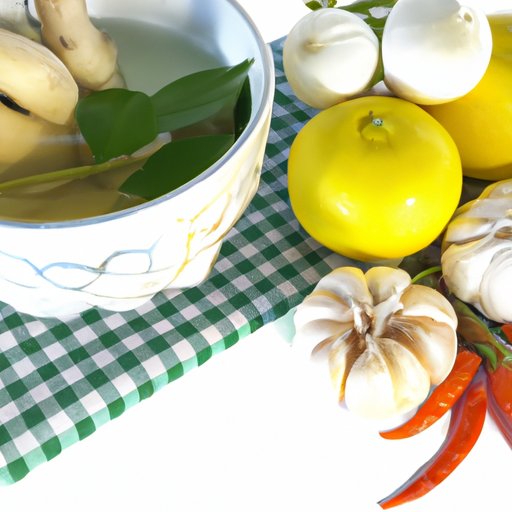
I. Introduction
Boils are a common skin ailment characterized by red, painful bumps on the skin that are often filled with pus or fluid. They can be caused by a bacterial infection, and though not usually serious, they can be uncomfortable and even painful. This article aims to provide readers with comprehensive and practical information on how to get rid of a boil and prevent future breakouts.
II. Home Remedies for Treating Boils
Home remedies are often a popular choice for those suffering from boils as they are cost-effective and easily accessible. Some of the most popular natural remedies include turmeric, tea tree oil, and warm compresses. Turmeric, which has natural antibacterial properties, can be applied as a paste to a boil. Tea tree oil can be applied directly to the boil or mixed with warm water to make a compress. Warm compresses can be made using a clean cloth soaked in warm water and applied to the area for 10-15 minutes several times a day. While home remedies can provide relief, it’s worth noting that they may not work for everyone and could take longer to see results.
III. Medical Treatment Options for Boils
Medical treatments can be more effective in treating boils than home remedies. Medical treatments can include prescription antibiotics, which can be administered either orally or topically, draining the boil using a sterile needle or surgical procedure, or prescription-strength ointments. However, it’s important to note that these treatments do come with potential side effects, such as allergic reactions and skin irritation. It’s important to consult with a healthcare professional before starting any medical treatment option.
IV. Diet and Lifestyle Changes for Preventing Boils
One of the best ways to prevent boils is through proactive measures that promote good skin health. For instance, eating a balanced diet rich in vitamins and minerals, maintaining good hygiene, and avoiding tight-fitting clothing. In addition, staying hydrated by drinking plenty of water and reducing stress levels are also helpful. These measures are a great way to promote good overall health and prevent the formation of boils.
V. Why You Shouldn’t Try to Pop a Boil
Although the idea of popping a boil may be tempting, it’s crucial to avoid doing so. Popping a boil can lead to the spread of bacteria and infection and even cause a more severe condition. If you want to speed up the healing process, applying a warm compress can help speed up the healing process.
VI. How Long Do Boils Take to Heal?
The healing process for boils can differ from person to person. Boils usually take around one to two weeks to clear up on their own. However, larger boils or boils in more sensitive areas may take longer to heal. Factors such as proper hygiene, reducing inflammation, and immunity play a vital role in determining the healing period. Ensure the area is kept clean and dry to promote faster healing.
VII. Over-the-Counter Remedies for Boils
Over-the-counter (OTC) remedies can also offer relief for boils. These include topical ointments or creams that can help reduce inflammation and bacteria. Products such as Neosporin and Aquaphor can help reduce the risk of infection and promote faster healing. These remedies, when used alongside medical or natural treatments, can provide a comprehensive approach to managing boils.
VIII. Conclusion
In conclusion, boils can be a discomforting skin condition, but they can be treated effectively with several remedies. Home remedies are a popular choice, but medical treatment options may be more effective in treating boils. The best way to prevent boils is by making proactive dietary and lifestyle choices. Even though boils can take a while to heal, patience and persistence in using the remedies provided can help expedite the healing process.





